In January 2025, Claire McCarrick, Dean of Faculty at Fordham Preparatory School, and Megan Cureton of Cureton Consulting joined Folio Collaborative for an interactive case study that examined how Fordham Preparatory School shifted their professional development model from evaluation to growth.
Discover how they leveraged collaboration, myFolio, and a focus on teacher strengths to create a sustainable and personalized PD program that empowers educators and improves student outcomes.
Take me to:
- Why It's All About Taking Small Steps
- The Need for Meaningful Feedback
- Laying the Foundation for the Peer Cohort Program
- Expanding Opportunities for Growth
- Finding the Right Tool for Growth
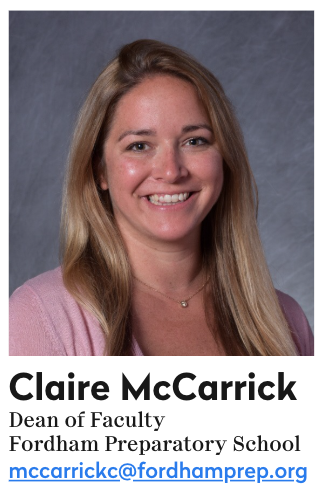
As the Dean of Faculty at Fordham Preparatory School, I’m proud of the progress our community has made since beginning this journey in 2021. Our work is still ongoing — and if there’s one thing we’ve learned, it’s that meaningful change happens through small steps over time.
When we set out to shift our culture, we knew it wouldn’t happen overnight — and it certainly wouldn’t be perfect. From the outside, the steps we’ve taken might seem like a straightforward path, but the reality has been much more complex. Real culture change is slow, messy, and non-linear — and it requires patience and persistence. Our school-wide culture is still evolving, and that’s a good thing!
Today, I want to share the story of how we’ve begun to move away from evaluation toward a culture centered on growth, collaboration, and strengths — and why I believe we are still only at the beginning of what’s possible.
Why It's All About Taking Small Steps
One of the most important things I want to convey is that big changes, especially in a school environment, take time. It’s easy to expect that when we start a new initiative, it should immediately yield the results we’re hoping for. But in my experience, that’s just not how change happens. It’s all about taking small steps, gathering buy-in along the way, and most importantly, being willing to stay engaged in the process for the long haul.

Take, for example, the school-wide review of our evaluation practices that began back in 2021. This wasn’t just a quick fix—it was a year-long process that engaged many members of our community.
Our goal wasn’t to make changes for the sake of change. Instead, we wanted to understand what wasn’t working, what needed improvement, and most crucially, how to build a system that would support meaningful growth over time. As part of that process, we formed a committee that included not just faculty members, but also staff, administration, and even board members.
This gave us the opportunity to listen deeply to the people who are most affected by these systems: our educators. And what we heard was telling.
The Need for Meaningful Feedback
The feedback system we had in place wasn’t working. At the time, most teachers at Fordham Prep were only receiving feedback twice a year, and often, the class visits felt performative—more about checking boxes than truly helping educators grow. We heard from faculty that this lack of meaningful feedback was eroding the trust between teachers and administration. That was a big wake-up call for us.
But what stood out even more was the clear desire our teachers had for growth - they want to be better at their craft.
They’re deeply invested in and committed to their students. Our teachers sought meaningful and constructive feedback to help them improve and develop professionally in service of their students.
Laying the Foundation for the Peer Cohort Program
Fast forward to the next school year, when, in partnership with Megan Cureton and Middle States Association, we started to lay the foundation of what we now call our Peer Cohort Program. Our goal was simple but impactful: shift the culture of feedback and professional development from a once- or twice-a-year check-in to something more continuous, collaborative, and growth-focused.
During this, our pilot year, we worked closely with a select and varied (by department, experience level, etc.) group of five teachers. They engaged in activities like learning walks, peer visits, and participated in ongoing dialogue about pedagogy. We quickly realized that these opportunities for sharing resources and learning from one another made a tangible difference so we slowly opened it up to more members of our faculty.

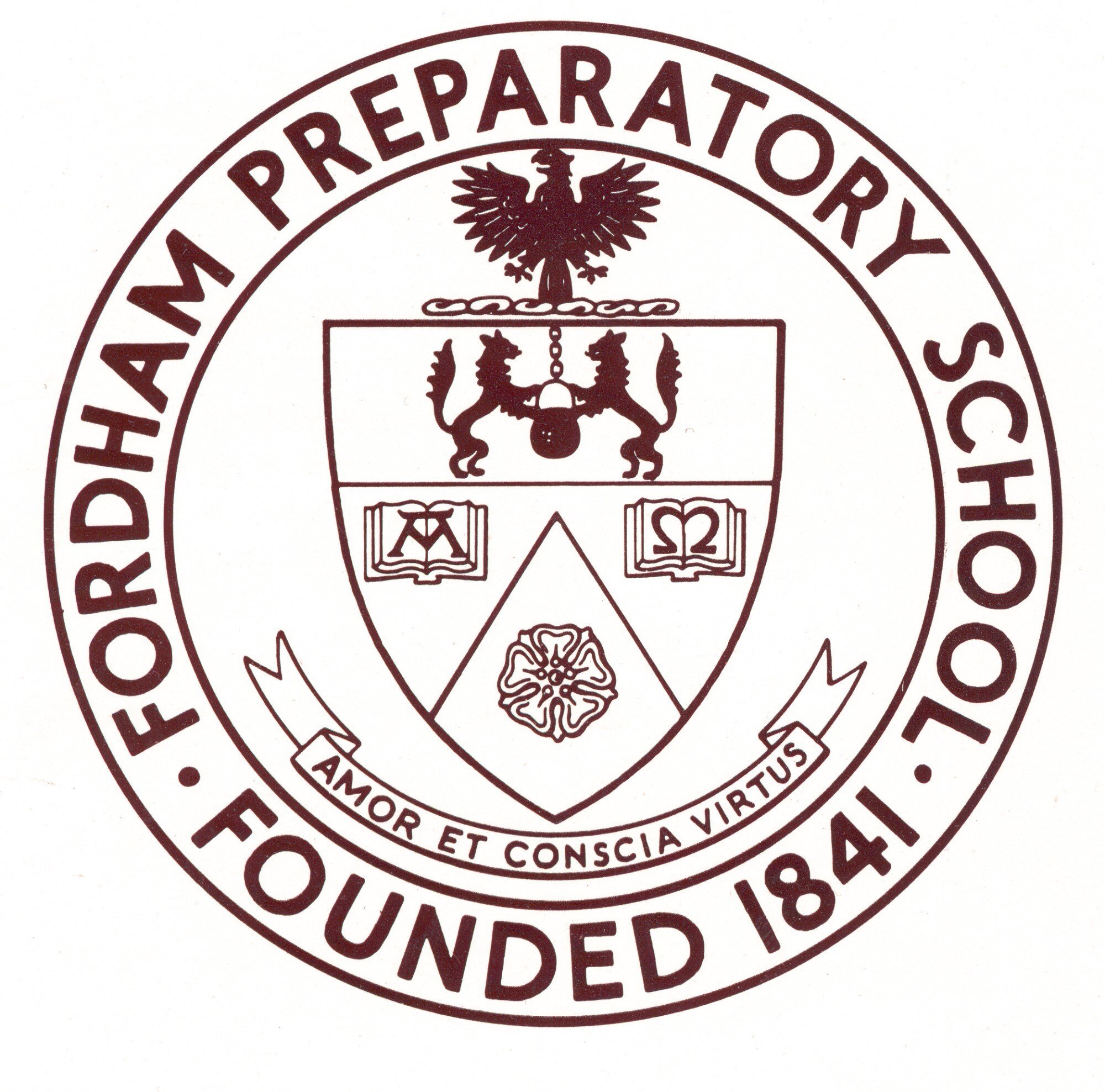
Peer Cohort Program
-
5 pilot members and Middle States
-
Shifting mindsets: Strengths
-
Learning Walks, Peer Visits
- Increase Collaboration
- Across departments
- Experience levels
The Peer Cohort Program is a model built around trust, mutual respect, and a shared commitment to professional growth. It’s a safe space where teachers are able to give and receive feedback, learn from different teaching styles, and share insights on what works (and what doesn’t!).
Expanding Opportunities for Growth
As we continue to grow and refine our Peer Cohort Program, one of the key areas of focus has been on identifying and building on our strengths. Following the pilot year, our Peer Cohort Program grew from one cohort (5 teachers) to three cohorts (15 teachers).
We were intentional about building up the program slowly and developing buy-in. But, despite the steady growth of the program, we didn't want our teachers to think that growth and development was an exclusive program meant only for a few. It needed to be something that we all worked on together.

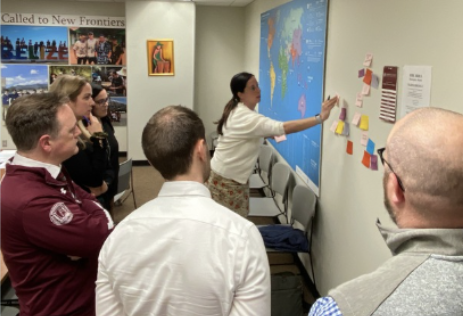
Growth for ALL
- 3 peer cohorts (15 teachers)
- PLC work
- Peer led workshops
- Goals conversations
- Innovation grant program
That’s when we implemented a series of initiatives to ensure faculty at all levels could engage with the spirit of development.
We launched Professional Learning Communities (PLCs) that faculty participated in throughout the year. These sessions, spread out over the school year, provided time for teachers to collaborate and learn from one another in a structured yet informal way.
Additionally, we introduced peer-led workshop mornings, where teachers could choose from a variety of workshops—five or six options at a time. This allowed faculty to focus on areas that were personally relevant to them and fostered a sense of ownership over their professional growth.
We also refined our goal-setting process, which had always been a part of our culture at Fordham Prep but hadn’t been consistently followed through on. Instead of being just a box to check at the beginning of the year, we shifted our focus to what we called "goals conversations."
These were more than just annual goals—they became ongoing dialogues about progress, challenges, and ways we could support each other throughout the year.
The feedback we’ve received from faculty about all of these changes has been overwhelmingly positive. One of the biggest takeaways has been how much our teachers value the sense of community and collegiality that these initiatives have fostered.
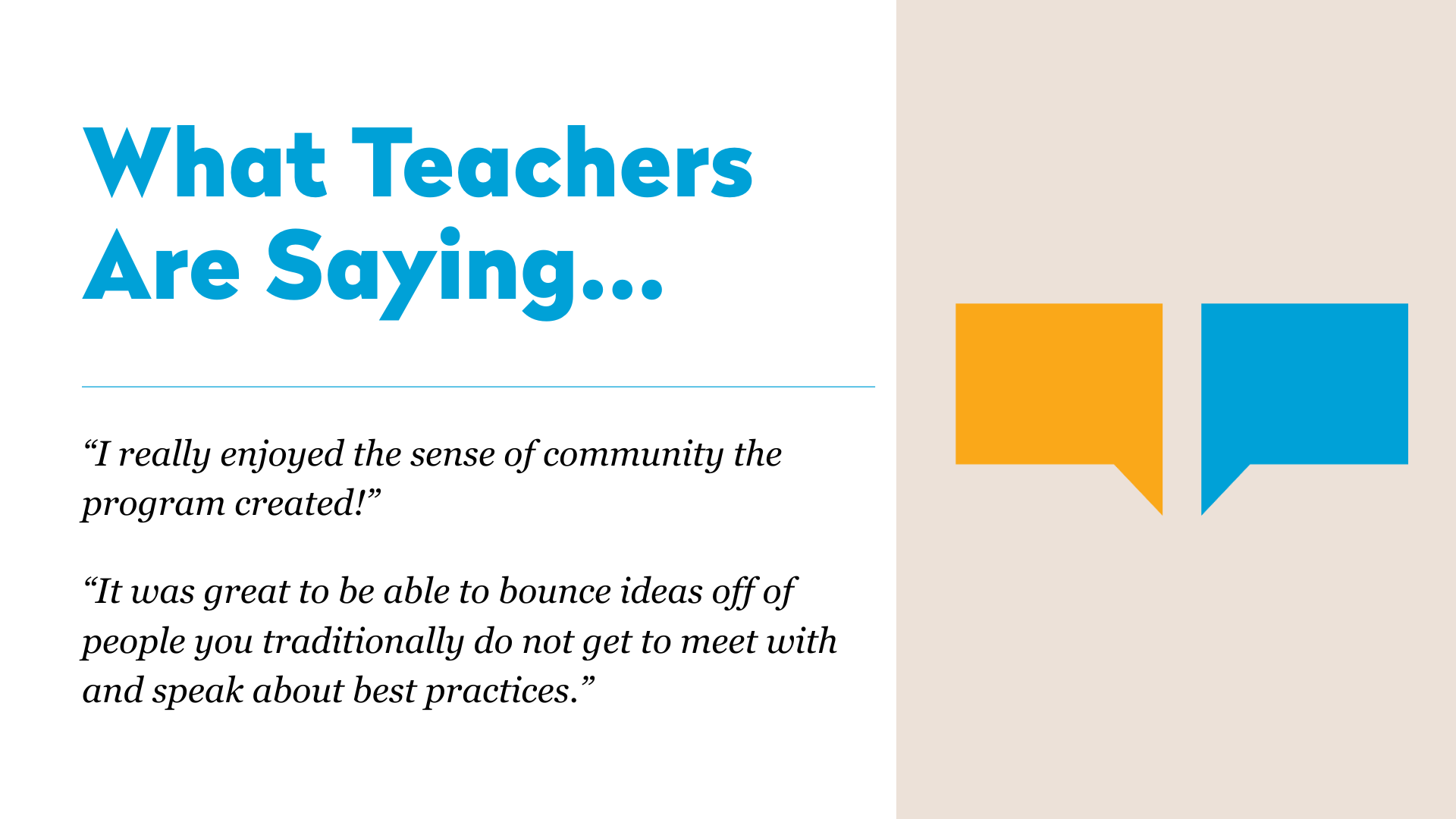
Faculty members appreciate the opportunity to collaborate, share resources, and engage in meaningful discussions with colleagues they might not have typically worked with.
It’s not just about improving our own practices—it’s about learning from each other and building a network of support across the school.
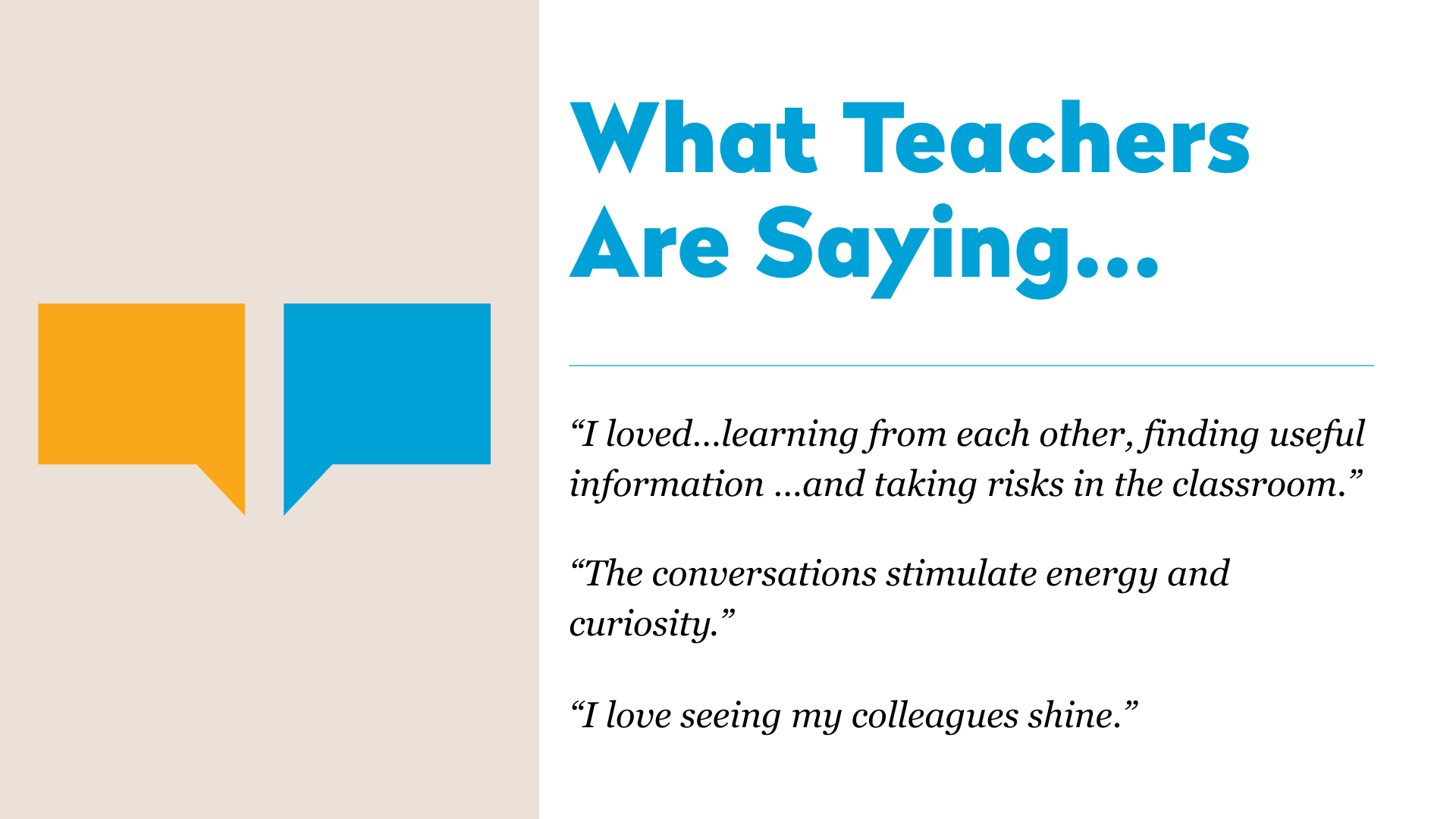
Perhaps the most rewarding feedback we’ve received is how much teachers recognize the impact of this collaborative approach on our students. When we, as teachers, model openness to learning and growth, we send a powerful message to our students about the importance of continuous improvement.
Under our old system, which we called the "observation and evaluation system,"teachers received feedback only twice a year—far too little for meaningful growth! What's more, teachers weren’t engaging in peer visits or providing peer feedback.
In contrast, our new system, which we’ve titled "growth and development," offers teachers in the peer cohort program over 10 opportunities each year to both give and receive feedback from others. This is a stark contrast to where we were just a few years ago, and it’s a reflection of how far we’ve come in terms of fostering a more dynamic, collaborative, and growth-oriented culture.

One of the most exciting aspects of this new system is that it recognizes the expertise that already exists within our building. It’s not just about teachers working with administrators or department chairpersons—it’s about leveraging the collective knowledge and experience of the entire faculty.
Finding the Right Tool for Growth
At this point, we have expanded the Peer Cohort Program to include five cohorts with 22 teachers actively engaged. We continue to build upon the work we started with PLCs, goal setting, and peer-led workshops, all of which have proven to be invaluable for fostering collaboration and growth across our faculty.
However, as you can imagine, managing all of these new initiatives—each designed to support different aspects of our teachers’ growth—has become a significant undertaking. With all these pieces in play, it became clear that we needed a way to pull them together into a cohesive framework. After all, if these programs and feedback processes were isolated, they would lack the clarity and meaning necessary for true, transformative growth.

That’s when we started searching for a solution to this challenge, and ultimately, that’s how we found Folio. Folio stood out because it truly resonated with the culture shift we’ve been working to create. At its core, Folio embodies the idea of making learning visible, which is central to the changes we’re striving to implement here at Fordham Prep.

Folio isn’t just a tool; it’s a bridge that ties together the various threads of our development efforts.
It allows us to centralize feedback, reflections, and resources in one accessible place, ensuring that all of our initiatives—from peer feedback to PLCs to workshops—are aligned and interconnected.
By bringing everything into one platform, we’re able to give our faculty the clarity they need to make meaning of the work they’re doing and the feedback they’re receiving. This allows us to make informed, data-driven decisions about how to continue growing and improving as a school community.
Since partnering with Folio, an additional focus has been aligning professional development with our school-wide priorities. Prior to this school year, Fordham Prep didn’t have clear themes to guide our work. But thanks to Folio, we’ve now established school-wide themes that help define the direction for the year. All individual goal setting done by teachers now falls within those themes. This alignment allows us to be more intentional about our professional development opportunities—whether it’s through full-day faculty meetings, peer cohort conversations, PLC work, or peer-led workshops.
Lastly, I want to highlight an important opportunity that Folio has provided for faculty members looking to take on more leadership responsibilities. As part of the Peer Cohort Program, each cohort has a designated leader. This gives teachers a chance to step into a leadership role, guiding their peers and helping to shape the direction of the program. It’s a wonderful opportunity for professional growth—and one that I believe will only continue to strengthen the sense of community and shared responsibility within our faculty.
With the integration of tools like Folio, a clearer alignment with school priorities, and increased opportunities for leadership, I’m confident that we’re on the right path.
This is about creating an environment that is focused around growth and development every day. It's not some special occasion that takes place. Instead, it's something that happens day in and day out.
🎥 Watch the source recording
🔎 View the source slide deck
⬇️ Download a copy of Fordham Prep's Principles of Highly Effective Learning Communities
CONTINUE YOUR LEARNING
Learn how Phoenix Country Day School shifted their professional development model from an evaluation system to a 3-year growth and renewal cycle.

